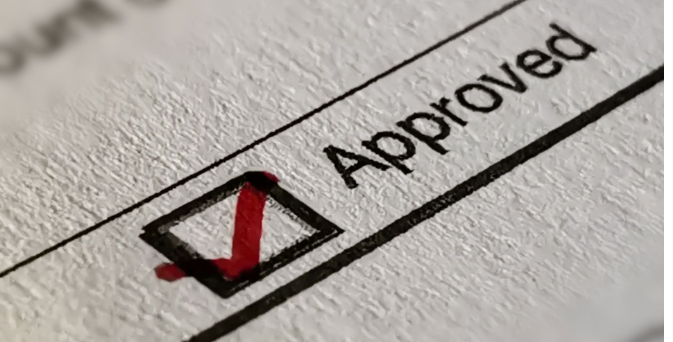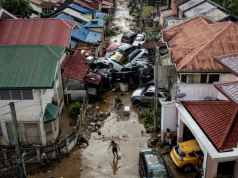“Not all deals are created equal…” That idea is the core of RA 12252.
RA 12252 is a strict set of rules that controls foreign investments in the Philippines. It allows only approved and registered projects to lease private lands for up to 99 years. The law makes sure that leases are given only for real, productive projects that meet important economic, strategic, and environmental standards. It stops deals that are just for speculation or don’t follow the rules. The law gives power to government agencies, including investment promotion groups and the Registry of Deeds, to enforce these rules, stop unauthorized land use, and punish rule-breakers. In the end, RA 12252 aims to attract long-term foreign money while protecting the country’s interests, making sure only good and responsible investments are allowed.
The main rule is clear: RA 12252 only allows approved and registered investment projects.

The National Balance
This law tries to find the right balance. On one hand, the country wants to attract foreign money by offering a stable, 99-year lease deal. This long lease is important for big projects that take many years. On the other hand, the government must protect the country’s interests. This means keeping local businesses safe, protecting the environment, and making sure the country stays in control.
Because of this, every investment is checked carefully. This careful review helps keep the public’s trust and ensures long-term stability, which is more valuable than quick money.
The process under RA 12252 is very important. It makes sure foreign investments help the country first. The law’s main message is clear: it welcomes foreign money, but only if the deals are good for the country. Not all deals are the same, and only the best ones are allowed.
Who Decides?
RA 12252 is a law designed to encourage and control long-term foreign investments in the Philippines. It sets clear rules about who can invest, how they can do it, and what projects qualify for leasing private lands for up to 99 years.
The real authority lies with specific government bodies, such as the Investment Promotion Agencies (IPAs), the Board of Investments (BOI), and the Fiscal Incentives Review Board (FIRB). These groups review every foreign investment proposal carefully.
Responsible Land Use
RA 12252 strictly controls how leased land can be used. The land must be used solely for the approved investment project. This prevents foreign investors from buying land just to hold or speculate without actual development.
RA 12252 protects the country by making sure foreign investments bring real benefits, like creating jobs and sharing new technology. It stops people from misusing land leases and makes sure investments match the country’s development goals and keep the nation safe. By requiring projects to be approved and leases to be officially registered, the law filters out weak or risky deals, allowing only serious and productive investments that truly help the Philippines grow.
The Gatekeeper: Defining “Allowed”
RA 12252 amends the Investors’ Lease Act (RA 7652). It sets up a predictable environment for foreign capital, which is important for big, long-term projects.
But the real power rests with the governing agencies: the Investment Promotion Agencies (IPAs), the Board of Investments (BOI), or the Fiscal Incentives Review Board (FIRB). They review every proposal.
For a project to be “allowed,” it must meet two essential steps:
- Approved Investment: The project must be registered under existing laws (like the Foreign Investments Act or the CREATE Act).
- Registered Lease Contract: The lease itself must be registered with the Registry of Deeds. This registration step is the crucial barrier that makes deals legally binding and secure.
On land use, the law is strict. It ensures that land is leased responsibly. The longer lease period is meant for actual industrial estates, factories, agro-industrial use, and tourism, not just buying up and holding land without a real plan.
Criteria for a “Good” Deal
Approved projects must meet clear national standards. They need to prove they will truly benefit the country.
| Test | Requirement | Goal |
|---|---|---|
| Economic Test | Must create high-value jobs and transfer new technology. | Not just to hire people, but to improve overall skills and productivity. |
| Strategic Test | Must match the country’s national development goals. | Priority goes to infrastructure, renewable energy, and export-oriented businesses. |
| Sustainability Test | Must pass environmental and social impact vetting. | Ensures that growth remains sustainable and doesn’t harm communities or the environment. |
| Investment Threshold | For tourism, the project must invest at least USD 5 million. | Proves the investment is serious and not speculative. |
Deals That Are Not Allowed
Many investment proposals are rejected because they fail the checks required by the law.
- Failure to Register: Simple rejection reasons include incomplete paperwork or a lack of proper capitalization.
- Unauthorized Use: The leased area must be used solely for the approved purpose. Using the land for anything else or withdrawing the registered investment warrants the automatic termination of the lease contract.
- Strategic Restrictions: The President can impose a shorter lease or reject a project entirely if it falls under vital services or industries deemed critical to national security.
- Speculation: The law screens out purely financial land deals. If an investor fails to commence the project within three years of signing the lease, the contract can be terminated. The government wants productive capital, not just land hoarding.
- High Penalties: Any violation, such as illegal land use or exceeding the 99-year limit, is taken seriously. Penalties for violations were increased significantly to a minimum fine of ₱1 million and possible imprisonment.
Reaffirming the Protective Mandate
The vetting process under RA 12252 is very important. It makes sure that foreign investments truly help the country first. The law doesn’t block foreign money, but it requires that money to come with responsibility and a clear plan for steady growth. In the end, the law protects the country by balancing the welcome of foreign capital with the need to keep national interests safe. The government will probably keep updating these rules to handle new kinds of investments and challenges in the future.
| HousingInteractive is proud to announce a comprehensive series of articles designed to break down the nuances of the amended Investors’ Lease Act. Stay tuned as we analyze how RA 12252 is setting the stage for a new era of long-term, high-impact foreign investment in the Philippines. Next: RA 12252 – The New Era of Foreign Land Leases |

























